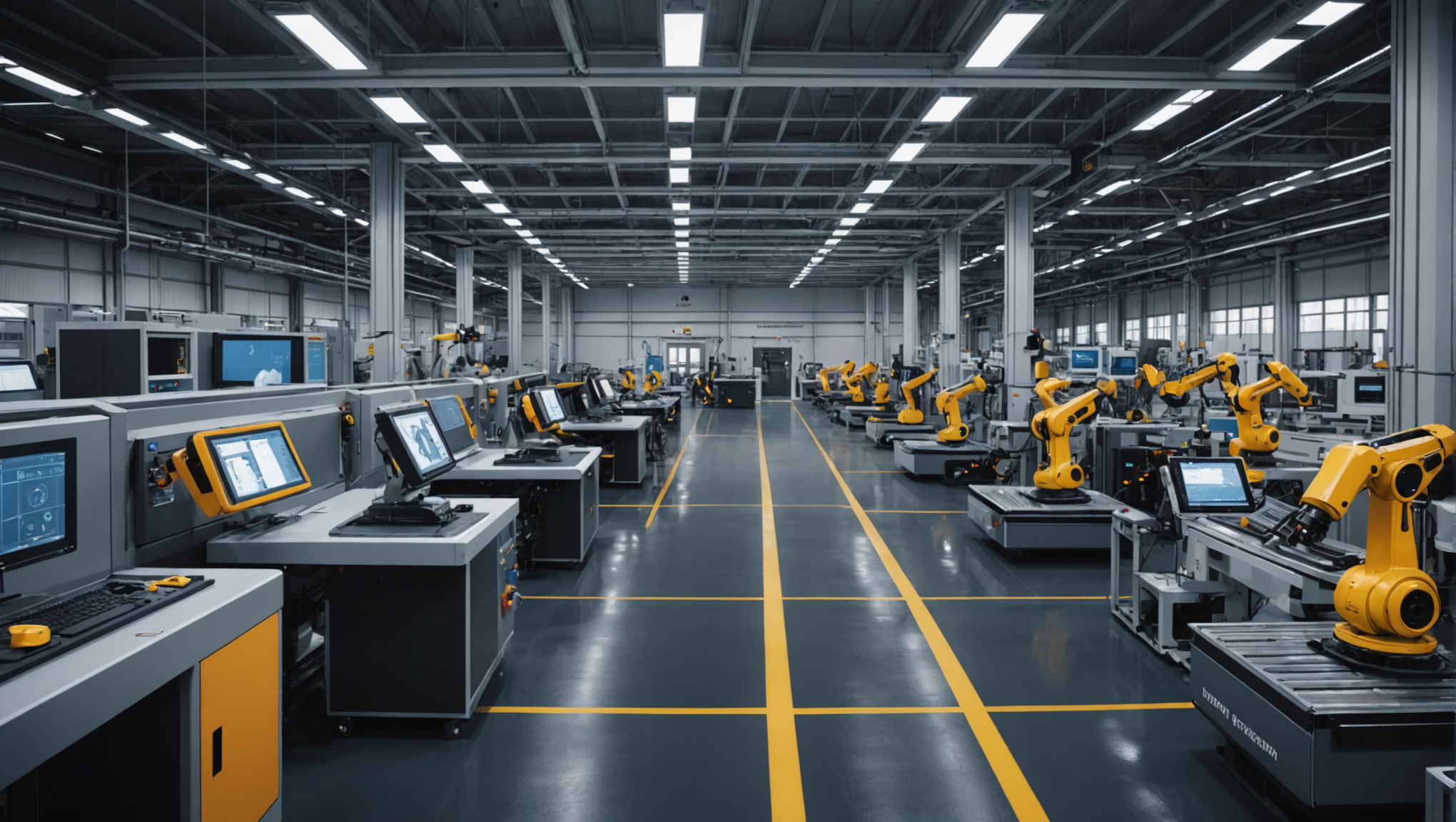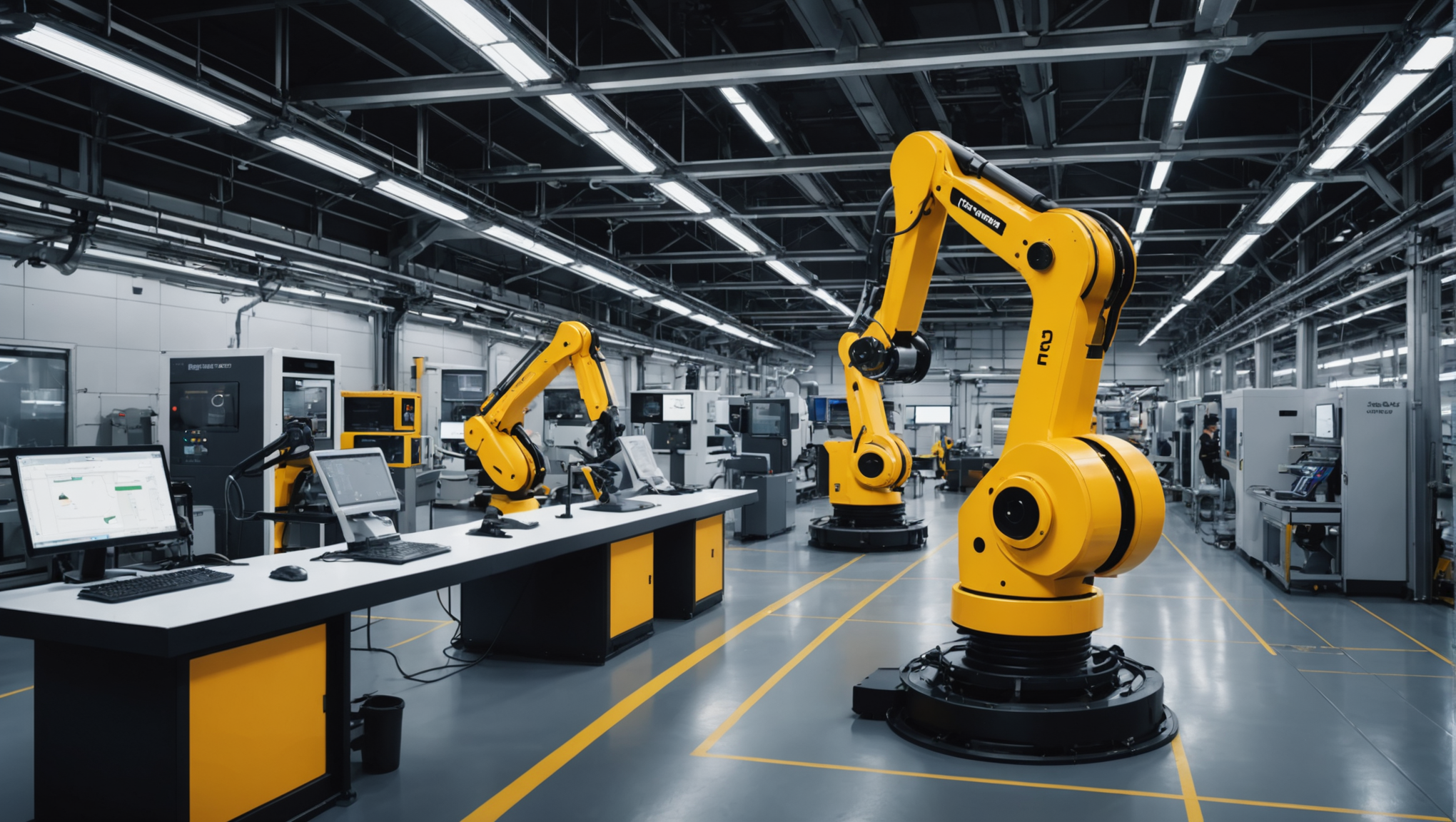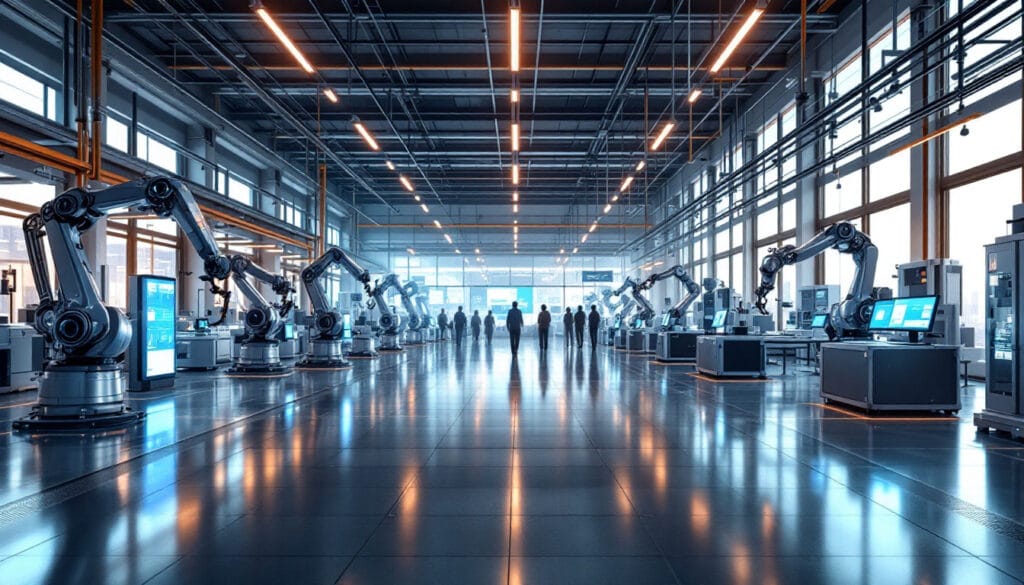The current technological revolution is transforming the very foundations of our industrial production. The era of Industry 4.0, often referred to as the factory of the future, is emerging as a decisive turning point where automation, connectivity, and artificial intelligence converge to redefine manufacturing methods. At this crossroads, companies must navigate through an ocean of innovations such as advanced robotics, Big Data, and digital twins, in order to optimize their processes while addressing the demands of an ever-evolving market.
Deciphering the stakes of this transition is not just a matter of technology, but also of corporate culture and employee training. How do these new practices impact supply chains? What are the ethical and environmental implications of this transformation? Leaders must also consider the integration of tools like the Internet of Things to enhance efficiency while ensuring system security. This journey toward the future of production embodies a quest for balance between economic performance and sustainability.

Table des matières
ToggleThe Future of Production: Decoding the Stakes of Industry 4.0
The concept of Industry 4.0 embodies a major transformation in the manufacturing sector, driven by the emergence of advanced technologies that redefine production processes and operate within a new era of innovation. Indeed, this fourth industrial revolution is based on concepts such as connectivity, automation, and the use of big data to optimize the value chain.
The Pillars of Industry 4.0 and Their Implications
At the foundation of this revolution, there are several key technologies that act as catalysts for industrial evolution. Among them, the Internet of Things (IoT), artificial intelligence (AI), advanced robotics, and 3D printing play a central role. Big Data, in particular, allows for the collection and real-time analysis of huge volumes of data, thus providing crucial insights for strategic decision-making.
A study conducted by the consulting firm McKinsey reveals that companies that fully leverage Industry 4.0 technologies can increase their productivity by 20 to 30%. Therefore, adopting Industry 4.0 solutions is essential to remain competitive, especially in a globalized market where production costs are under constant pressure.

The Impact of Big Data and Artificial Intelligence on Decision-Making
Big Data is the central element of production optimization strategies. Thanks to IoT sensors placed on machines, data is collected continuously, allowing for a better understanding of manufacturing processes. Not only do these insights help identify potential failure points, but they also influence product design by taking into account instantaneous customer feedback.
Moreover, the integration of artificial intelligence in production chains fosters more accurate forecasts regarding market needs. AI-based systems can analyze complex trends, thus optimizing stock and resource management. For example, companies like Siemens and Bosch are already using these technologies to minimize downtime and maximize factory output.
A concrete case is that of an automotive parts manufacturing plant which, after integrating big data analysis through AI software, saw a reduction in its operating costs by 15% and an increase in productivity by 25%. This type of transformation is not just a trend, but an imperative for contemporary industries.
Strategies for a Successful Transition to Industry 4.0
To successfully make this transition, companies must adopt a methodical approach. Here are some practical recommendations:
- Assessing Needs: Before diving into implementation, it is crucial to conduct a technological audit to determine the areas where Industry 4.0 can have the greatest impact.
- Employee Training: Digital transformation cannot be effective without the involvement of teams. Training programs must be established to familiarize employees with these new technologies.
- Strengthening Cybersecurity: The more connected the industry becomes, the more vulnerable it is. Investing in robust cybersecurity solutions is essential to protect sensitive data and critical infrastructures.
The stakes of the transformation towards intelligent production are not limited to the technology itself. They also involve economic, social, and environmental considerations. For instance, improving processes not only increases profitability but also reduces carbon footprint through more sustainable manufacturing methods.
Après, il est vrai que l'un des coeurs du industrie 4.0 c'est aussi de piloter la production industrielle en fonction de la disponibilité énergétique.
— Gilles Babinet (@babgi) August 30, 2024
Electricité : le plan choc de Berlin pour s'adapter à la météo https://t.co/1LOQXss1Mq via @latribune
A report by Global Strategic Research indicates that the Industry 4.0 market could exceed $555 billion by 2032. This figure illustrates not only the scale of the impending transition but also the opportunities it generates.
In conclusion, Industry 4.0 offers a promising future for production, but it requires a voluntary commitment from companies to invest in technologies, training, and security. Innovation is the essential engine of this transformation, and those who can leverage new tools will have a undeniable competitive advantage.
FAQ: The Future of Production and the Stakes of Industry 4.0
What is Industry 4.0? Industry 4.0 refers to a generation of connected factories that integrate advanced technologies such as artificial intelligence, robotics, and the Internet of Things (IoT).
What are the main advantages of Industry 4.0? It enables the optimization of production processes, improves productivity, and increases flexibility in factories, while reducing data-driven decisions.
What technologies are at the heart of Industry 4.0? Innovations such as augmented reality, 3D printing, and digital twins are essential for the development of smart factories.
How does Big Data play a role in Industry 4.0? Big Data allows for the analysis of vast volumes of data to extract valuable information that supports strategic decisions.
How does Industry 4.0 affect employment? It transforms jobs by requiring new skills, but it does not replace all jobs. New roles are emerging in the management and analysis of technologies.
What challenges does Industry 4.0 need to overcome? The main challenges include cybersecurity, the integration of technologies, and the need to train the workforce to adapt to new tools.
How does Industry 4.0 contribute to sustainability? It allows for operational optimization, waste reduction, and promotes circular and sustainable production through better resource management.
Why is it necessary to adopt Industry 4.0 solutions? To remain competitive, reduce production costs, and improve product quality, it is essential to adapt to technological developments.





